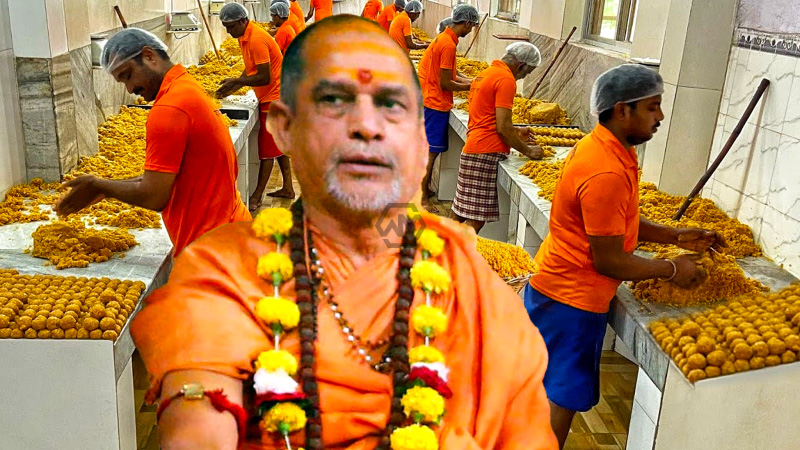- Shankaracharya Sadanand Saraswati criticizes political interference in temple administration.
- He demands accountability for the alleged adulteration of prasadam at Tirupati.
- The Tirupati temple trust conducted a purification ritual amidst growing controversy.
In light of the recent allegations regarding the use of adulterated ghee in prasadam at the Tirupati temple, Shankaracharya Sadanand Saraswati has spoken out against political involvement in religious affairs.
The discovery of inappropriate substances, including claims of animal fat in the famous Tirupati laddus, has incited outrage among devotees.
Tirupati Temple Controversy: Calls for Purification and Accountability
The ongoing controversy surrounding the Tirupati temple has raised significant questions about the management of religious institutions. Shankaracharya Sadanand Saraswati has vehemently criticized the involvement of politicians in temple affairs, insisting that such places should be governed by religious leaders. He highlighted the need for accountability following the shocking revelations of adulteration in prasadam, urging a reevaluation of who oversees these sacred spaces.
In a recent statement, the Shankaracharya expressed his concern that the alleged inclusion of animal fat in prasadam undermines the sanctity of Hindu beliefs. He labeled the incident as an assault on Sanatan Dharma, calling for severe repercussions against those responsible. The temple trust responded to the outrage by performing a four-hour purification ritual, aiming to address the community’s concerns and restore faith among devotees.
As the investigation progresses, the formation of a Special Investigation Team signifies the seriousness with which these allegations are being treated. The inquiry aims to uncover the truth behind the claims of adulteration and hold those accountable who may have compromised the integrity of the temple’s offerings. This situation underscores the delicate balance between religious devotion and administrative oversight.
Devotees and religious leaders alike are calling for a system where spiritual leaders can govern temple practices without political interference. This event not only highlights the importance of safeguarding religious traditions but also raises broader questions about the governance of religious institutions in contemporary society.
In conclusion, the controversy surrounding the Tirupati temple highlights the need for clear boundaries between political governance and religious authority, ensuring the sanctity of sacred traditions.
“Politicians and state governments are not supposed to run the temples. It is a matter of religion so religious leaders should be left to make decisions.” — Shankaracharya Sadanand Saraswati



